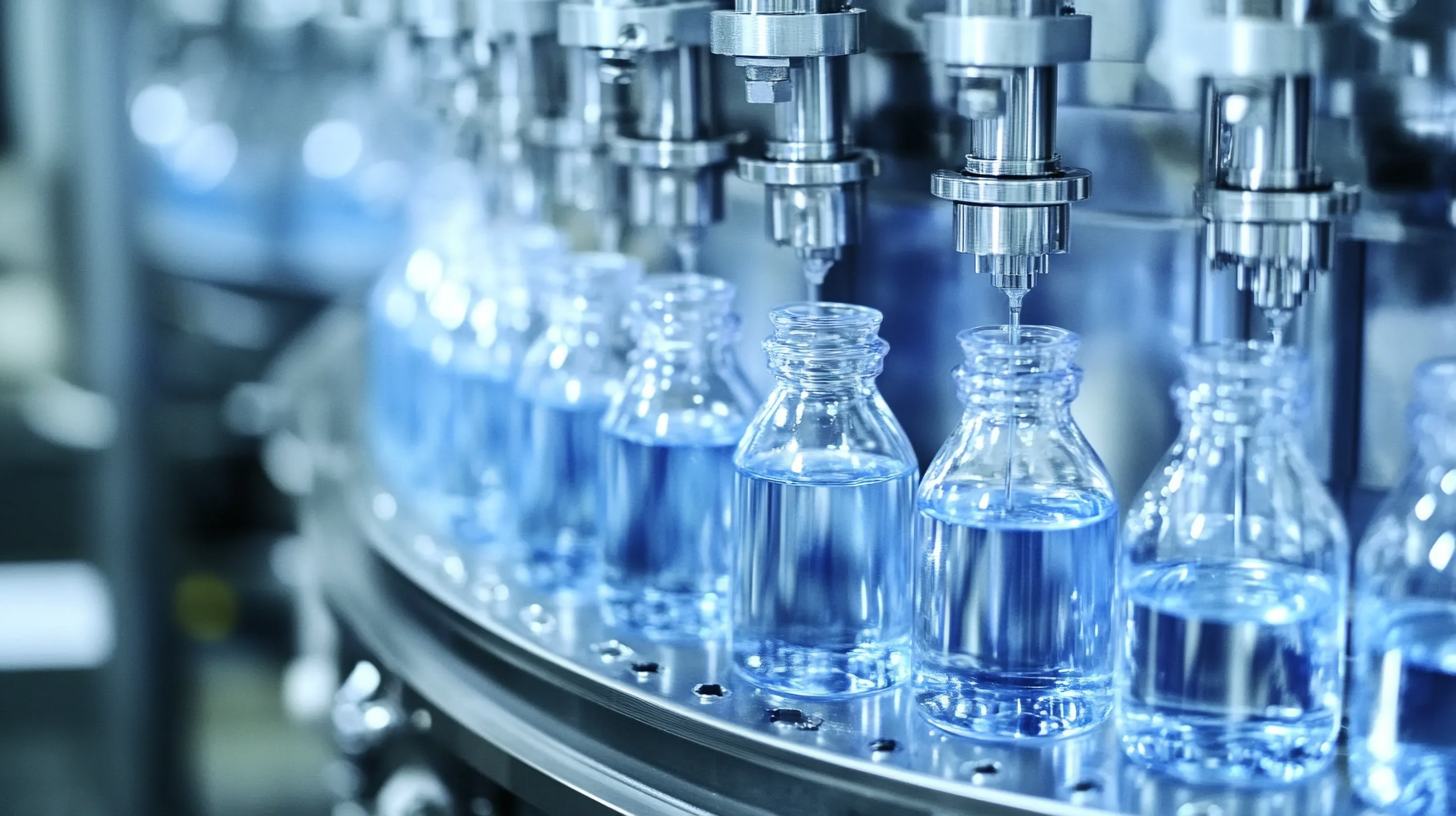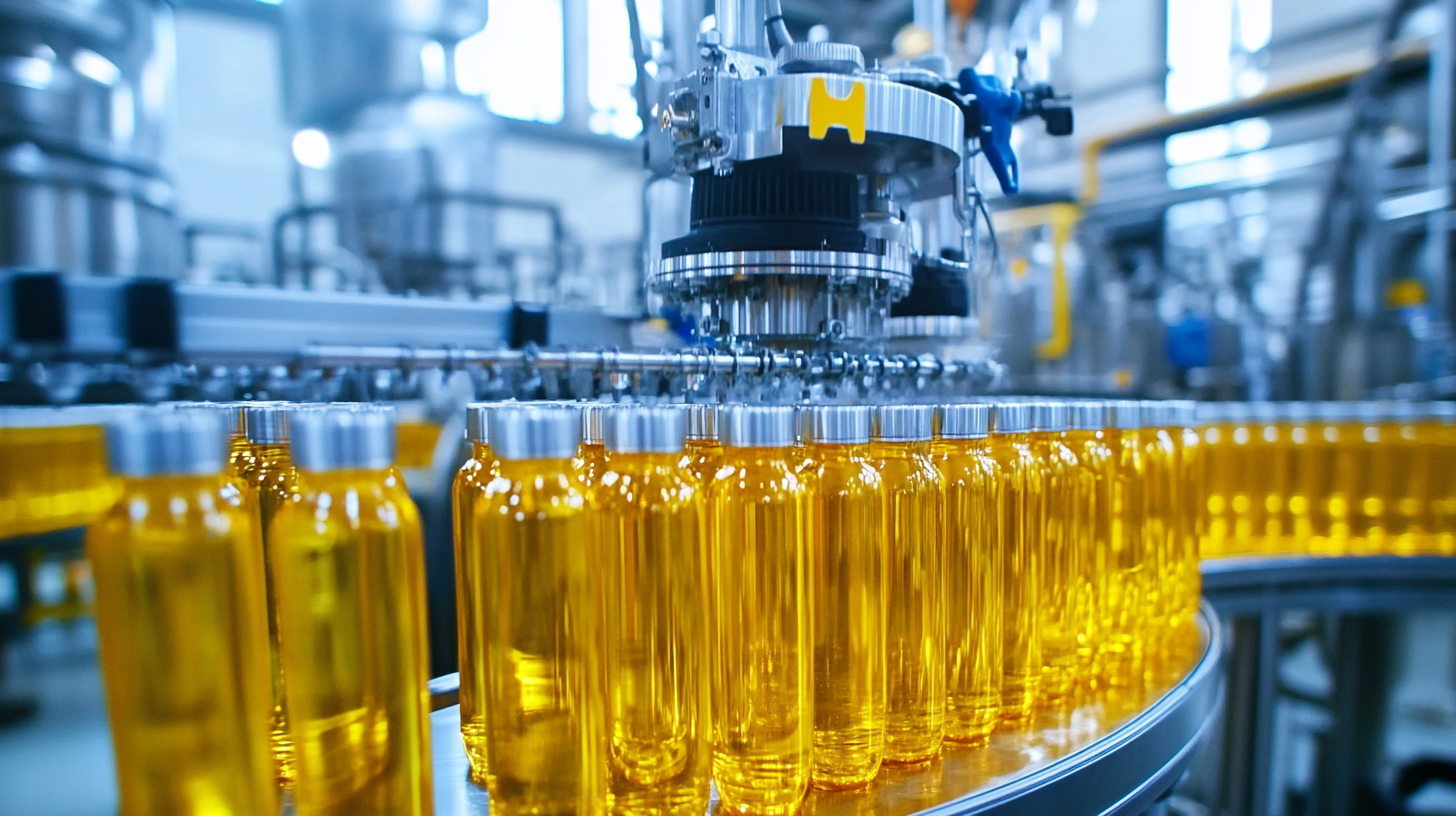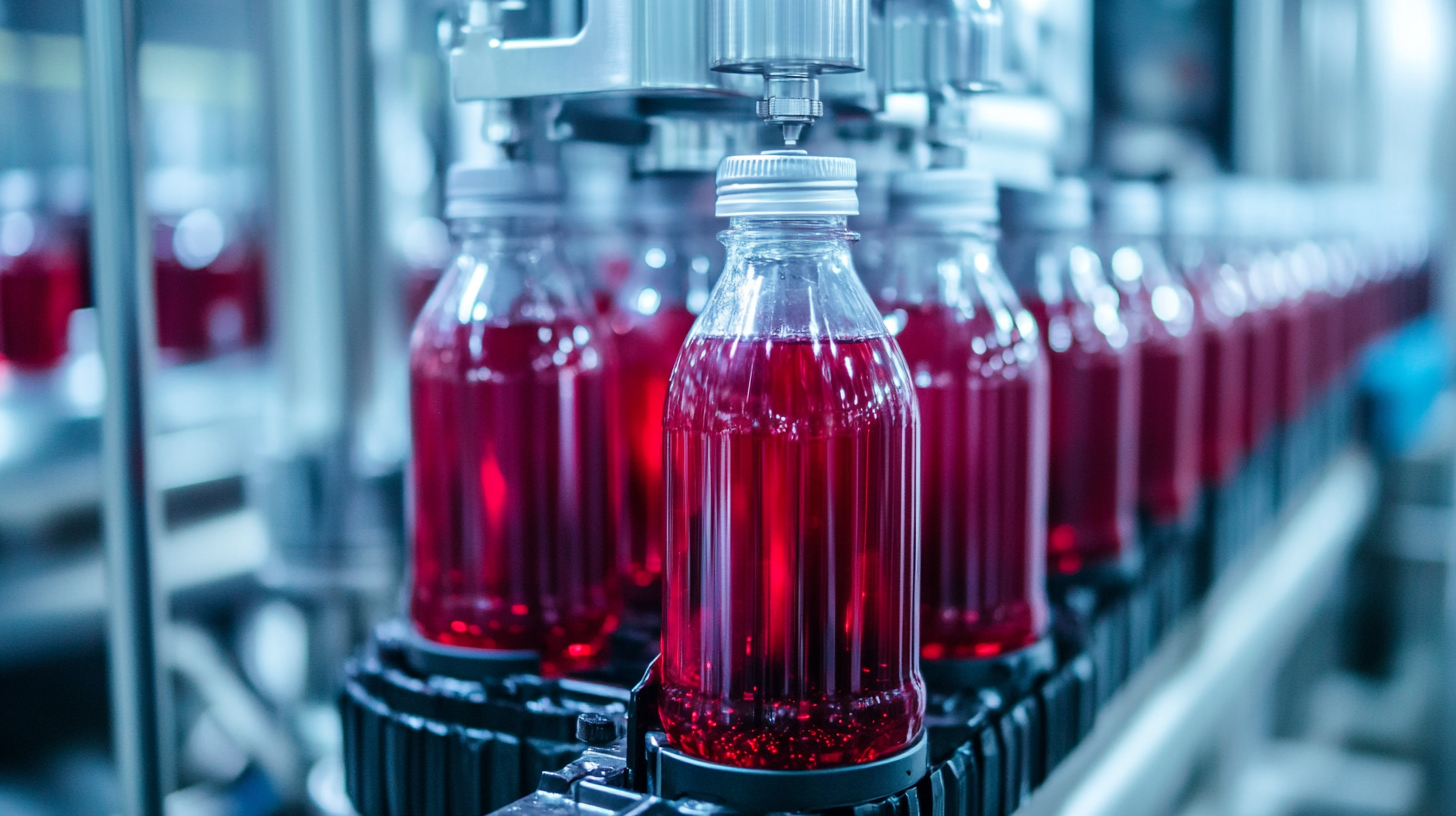In today's competitive beverage and liquid packaging industry, the selection of the right manufacturer for an Automatic Bottle Filling Machine is crucial for operational efficiency and product quality. According to a report from MarketsandMarkets, the global liquid packaging market is projected to reach USD 300 billion by 2026, growing at a CAGR of 5.4%. This surge in demand highlights the importance of investing in advanced filling technology, as businesses strive to enhance productivity and maintain consistency in their product offerings. The right automatic bottle filling solutions can significantly minimize downtime and ensure compliance with industry standards, ultimately contributing to a company's bottom line. This blog will explore key considerations and steps to select the ideal manufacturer that aligns with your specific operational needs and quality standards.

In the modern bottling industry, automation plays a crucial role in enhancing operational efficiency. As highlighted in recent market analyses, the global wine production machinery market is projected to grow from $2.52 billion in 2025 to $3.85 billion by 2032, demonstrating a robust compound annual growth rate (CAGR) of 6.3%. This growth underscores the increasing adoption of automated solutions, which are renowned for their ability to streamline processes and improve productivity. By integrating automated bottle filling machines, wineries can achieve higher production rates and optimize material usage, thereby reducing waste and lowering operational costs.

Furthermore, automation in bottling operations also translates to significant cost savings. During economic uncertainties, businesses often seek ways to cut costs while maintaining quality. Implementing automated solutions allows for precise control over production, leading to a reduction in errors and an improvement in product quality. Advances in robotics and AI also mean that these systems can operate with greater efficiency, further driving down costs and enhancing competitiveness in a rapidly evolving market landscape. As the industry moves toward Industry 5.0, the incorporation of collaborative robots will create new opportunities for innovation and productivity.
When selecting an automatic bottle filling machine, it’s crucial to focus on key features that ensure efficiency, accuracy, and adaptability. A recent report from the Research and Markets indicates that the global market for bottling machinery is expected to grow at a CAGR of 6.2% from 2023 to 2030, underscoring the importance of investing in high-quality equipment. One of the primary features to look for is the filling technology employed by the machine. Options such as gravity filling, pressure filling, and vacuum filling offer different advantages depending on the type of liquid being processed.
Additionally, consider the machine's compatibility with various bottle sizes and shapes. The ability to easily switch between different formats without extensive downtime is a vital characteristic, as highlighted by a study from Allied Market Research, which suggests that companies prioritizing flexibility in their bottling processes experience a 15% increase in operational efficiency. Other essential features include the rate of filling (ideally exceeding 200 bottles per minute), ease of cleaning, and minimal maintenance requirements, which all contribute to optimizing production lines and ensuring high-quality output. Investing in a machine that incorporates these features will significantly enhance operational success.
When selecting the right manufacturer for automatic bottle filling machines, evaluating the manufacturer's reputation is crucial. Industry experts emphasize that a strong reputation often reflects reliability and quality. Manufacturers with established credibility tend to invest in their technology and customer service, ensuring they meet the ever-evolving demands of the market. Engaging with professionals in the field and reviewing case studies can provide valuable insights into a manufacturer's past performance, helping businesses make informed decisions.
Moreover, the current landscape shows a growing emphasis on sustainability and ethical practices among manufacturers. As seen in recent discussions surrounding ESG (Environmental, Social, and Governance) standards in the shipping industry, stakeholders are increasingly prioritizing companies that demonstrate a commitment to reducing their carbon footprint and acting responsibly. This trend also extends to the manufacturing sector, where potential partners who adhere to ethical guidelines and sustainable practices may be more favorable in the eyes of clients. Thus, evaluating a manufacturer’s reputation involves not just their operational excellence but also their alignment with broader industry values.
When it comes to selecting an automatic bottle filling machine, striking the right balance between cost and quality is crucial for any business.
While it may be tempting to choose the cheapest option available, understanding the long-term implications of such a decision is vital. A lower price may lead to higher maintenance costs, decreased efficiency, and potential production downtime, ultimately harming your profit margins.
Therefore, businesses should conduct thorough research and choose manufacturers that offer a reputation for reliability and quality, ensuring the machine's longevity.
Another essential factor to consider is the specific needs of your production line. Different manufacturers may provide varying features, customization options, and support services that cater to your unique requirements.
Investing in a higher-quality machine might have a steeper upfront cost, but the benefits of improved performance, lower operational expenses, and enhanced product integrity can justify the initial expenditure.
By taking the time to analyze the correlation between cost and quality, businesses can make informed purchasing decisions that support their operational efficiency and long-term growth.
When selecting a manufacturer for automatic bottle filling machines, the importance of after-sales support cannot be overstated. According to a report by Grand View Research, the global market for automatic filling machines is expected to reach USD 9.5 billion by 2025, highlighting the competitive nature of the industry. A manufacturer that offers comprehensive after-sales support can significantly enhance your operational efficiency, ensuring that your machines run smoothly and any issues are promptly addressed.
Tips: Ensure that the manufacturer provides a clear outline of their after-sales services, including warranty options, maintenance programs, and the availability of spare parts. A supplier with dedicated support staff can also provide guidance for optimal machine performance, reducing downtime.
Moreover, effective after-sales support includes training for your staff, enabling them to operate and maintain the equipment properly. According to a survey by Technavio, companies with robust training programs reported a 20% increase in production efficiency. Engaging with a manufacturer that prioritizes training and support will position your business for long-term success.
Tips: Request testimonials or case studies from the manufacturer that demonstrate their after-sales success with other clients. This can provide valuable insights into their reliability and service quality.

Headquarters
2980 Scott St, Vista, CA 92081
Phone: (760) 734-4177
Fax: (760) 734-4188
Open: 8:00 am – 4:30 pm
Texas
8051 Jetstar Dr #175 Irving, TX 75063
Phone: (972) 915-6888
Fax: (972) 915-6999
Open: 8:00 am – 4:30 pm
Florida
14231 Jetport Loop. #1 Fort Myers, FL 33913
Phone: (239) 225-4020
Fax: (239) 225-4024
Open: 8:00 am – 4:30 pm